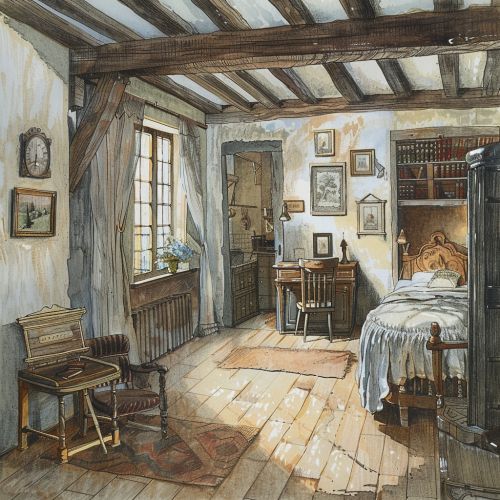Voltaire
Early Life
François-Marie Arouet, known by his nom de plume Voltaire, was born on 21 November 1694 in Paris, France. His father, François Arouet, was a notary and minor treasury official, and his mother, Marie Marguerite Daumard, was a woman of modest means. Voltaire was the youngest of five children.


Education
Voltaire was educated by the Jesuits at the Collège Louis-le-Grand in Paris from 1704 to 1711, where he learned Latin and Greek; later in life he became fluent in Italian, Spanish, and English. Despite his father's wishes for him to become a lawyer, Voltaire, inspired by his love for literature, decided to become a writer.
Literary Career
Voltaire began his career as a writer in earnest in 1718 with the publication of his first play, "Oedipe". His work was marked by a sophisticated style, a keen sense of wit, and a clear advocacy for freedom of thought. He was a prolific writer, producing works in almost every literary form including plays, poems, novels, essays, histories, and scientific expositions. His most notable works include "Candide", "Zadig", and "L'Ingénu".
Philosophy
Voltaire was a leading figure of the Enlightenment, a cultural movement of intellectuals in the 18th century, advocating for reason, the scientific method, and skepticism of religious orthodoxy. He was a deist, believing in a supreme being but rejecting organized religion. He was a strong advocate for social reform, including freedom of religion, freedom of expression, and separation of church and state.
Later Life and Death
In his later years, Voltaire became increasingly involved in advocating for civil liberties, and he was instrumental in campaigning for the rights of the oppressed. He died in Paris on 30 May 1778. His influence on the French Revolution, which began a decade after his death, is well documented.
Legacy
Voltaire's legacy is vast. His advocacy for freedom of speech and his criticisms of religious dogma remain relevant today. His works continue to be studied and appreciated for their literary merit and their insightful commentary on human nature and society.
